US-Iran
May, the holy month of Ramadan, instead of ensuing peace, witnessed heightening of tensions in the Middle East region. On May 2, President Trump declared that no more waivers in purchase of oil will be allowed for the eight countries including India who were permitted to import crude from Iran since last November as an exception. US Troop movements and sabre rattling was heightened and more severe sanctions imposed. The Iranians responded in kind while both sides adhered to the rhetoric that ‘no one wants war’ but they were ready for it. Even four Saudi oil tankers in the UAE port (May 12) were hit and drone attacks on Saudi pipelines (May21) by Houthi rebels were called ‘naked aggression’. Iranians were accused of complicity by not only the UAE Ministers but also John Bolton that further gave wind to the war clouds.
Diplomatic activity to diffuse the situation and to contain the fall out was the natural outcome. The Iranian Foreign Minister Javad Zarif visited India but was informed that post formation of new Government, India will be able to take a decision with regard to continued buying of oil as reportedly India had placed no fresh orders but was looking for alternate financial and payment mechanisms. China and Turkey clearly opposed the US action while EU expressed its muted opposition much to the discomfort of the Iranians who were banking on a robust counter and hence decided to increase the limit of enrichment of Uranium. Secretary of State Pompeo‘s call for unconditional talks (perhaps perceived by Iranians with some implicit conditions) and President Trump’s statement recently in Japan that he did not want war with Iran could not move the Iranians who dismissed these as insincere and mere ‘word-play’, stating, "The Islamic Republic of Iran does not pay attention to word-play and expression of hidden agenda in new forms." Further FM Zarif said that "It’s not very likely because talking is the continuation of the process of pressure. He is imposing pressure. This may work in the real estate market. It does not work in dealing with Iran." However, by following his maximalist position President Trump hopes that Iran would return to the negotiating table.
GCC & Arab League Summits
Apart from bilateral shuttle diplomacy, countries in the region and outside from the Muslim world attended three Summits in the end of the month (May 30-31) in Mecca which included GCC (Six member Gulf Cooperation Council), Arab League and the OIC - all of them expressing concerns about the destabilising situation in the Persian gulf. The only saving grace was that after almost three years of blockade of Qatar by the Saudi Arabia, UAE, Bahrain and Egypt, the Qatari Prime Minister Al Thani attended the meet even though one did not witness a thaw in relations. On the other hand, expressing their reservations, the Qatari FM Abdurrahman Al Thani said that “The Summits adopted Washington’s policy towards Iran and not the one that takes neighbourhood into consideration”. Al Thani further denounced, “The Gulf summit statement talked about a unified Gulf, but where is it amid the continuation of Qatar's blockade?" At the OIC even a low-level Iranian delegation was present. The Saudis and Emiratis obviously berated the Qatari position post Summit. In the meantime, Qatari Emir has been invited by President Trump to discuss the regional and bilateral issues on June 9.
OIC Summit, Mecca
It will be recalled that at the Foreign Ministers Organisation for Islamic Cooperation (OIC) meet in March, India’s External Affairs Minister was invited as an honoured guest, but at the recent 14th Summit at Mecca the OIC reverted to its old anti-India tricks and appointed Saudi Arabia’s Yousef Aldobyea a special envoy for J&K expressing their solidarity with the Kashmiris and urging India to hold a referendum. India obviously rejected condemned this statement and unsolicited intervention by the OIC.
‘Deal of the Century’
President Trump’s son in law Jared Kushner, the innovator of the yet to be announced ‘Deal of the Century’ to resolve the ever festering and Israeli-Palestine conflict made a fresh push by visiting Amman, Rabat and Jerusalem ( May 27-31). He was accompanied by Jason Greenblatt, Trump's special representative for international negotiations, and Brian Hook, the special US representative for Iran. This was also to seek regional support for the proposed Economic workshop in Manama from June 25-26 for kick-starting the Middle East Peace Process essentially providing an economic package to reconstruction of conflict and poverty ridden Gaza. While the Bahrain conference - Peace for Prosperity - if held, might see some huge investment pledges for infrastructure development in the Palestinian territories but the distrust for the US and especially Trump may make it a non-starter. As such President Mahmoud Abbas said that neither they have been invited nor will any Palestinians will attend this event. He further said that “The Palestinian Authority does not recognise this conference and that Trump's "Deal of the Century" will go to hell, as will the economic workshop in Bahrain that the Americans intend to hold “.
Palestinians fear and believe that President Trump’s deal will finish off the Palestinian cause and the State which they have fought for decades and that it is heavily skewed in favour of the Israelis. As such US negotiators have dropped using the “Two State Solution” leading to greater confusion after the US decision to recognise Jerusalem as the de facto capital last year. However, the political problems of PM Netanyahu and his inability to form a government forced yet another election in September. This political instability could have an impact on the proposed conference. No wonder, President Trump advised Netanyahu to put his house in order. This development might delay the announcement of the Deal.
Syria-India
As the situation in Syria winds down, several countries in the region are making efforts to either reinstate diplomatic ties or committing investments for reconstruction. India on its part has taken a very balanced approach to the Syrian situation, always propagating Syrian led and owned peace process that must ensure its territorial integrity - which has been widely appreciated. India did not support the regime change agenda of some powers. Also, in order to contribute and partake in the reconstruction projects India has actively focussed its attention on the Syrian opportunity. Hence the visit of Amb TS Tirumurti, Secretary Economic Relations ( May 19-21) may be seen in this context as well as to assure the Syrian leadership of India’s continued commitment Syria’s development. India’s independent position has been widely appreciated by Syrians who also believe that preference during reconstruction should be given to the countries that stood by the Syrians.

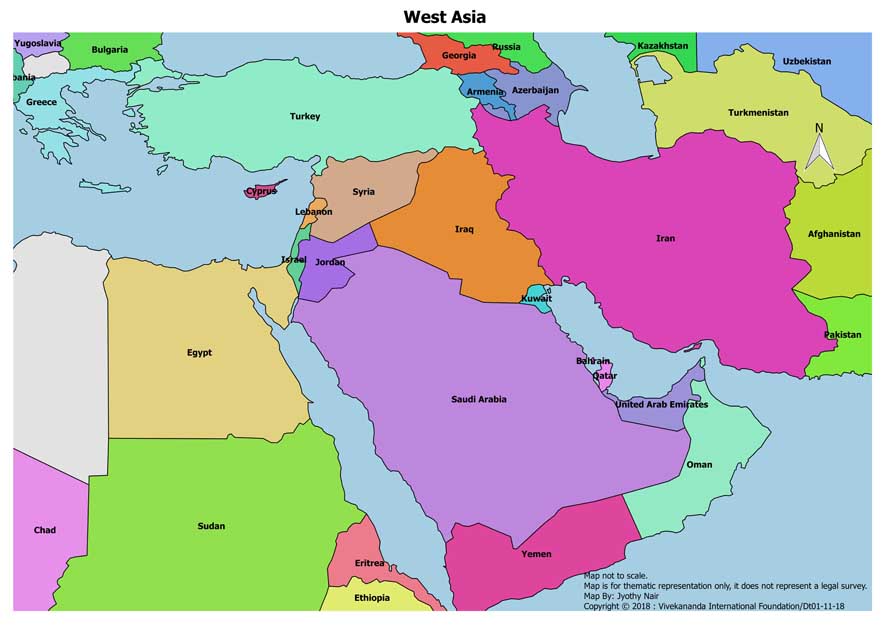

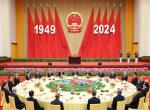

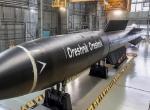

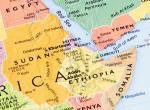
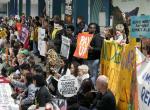
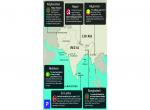
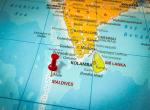
Post new comment